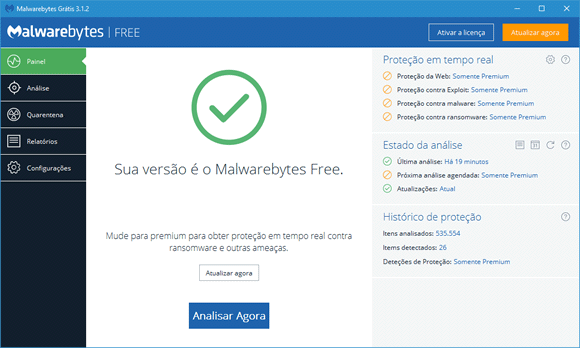
Remove Virus From Computer Software Emerging Each
Everyone is (and should be) concerned about computer viruses, especially with new variations of this malicious software emerging each year. Install the latest updates from Microsoft Update. To remove a computer virus and other malicious software, follow these steps in order. For more information about how to remove a computer virus and spyware, see the following article in the Microsoft Knowledge Base: 2671662 - Microsoft resources and guidance for removal of malware and viruses.

3.As society becomes more dependent on technology, it’s important to educate yourself, family, friends, employees and co-workers about safely navigating the internet. This is an effective action to blocking strange malware or. Disable Unknown or Strange Process from Windows Startup. This process will end running virus-related programs on your. End Running Virus-Related Processes in Task Manager.
Remove Virus From Computer Free Games And
Even connecting to an infected external drive (like a USB) can introduce malicious software into your system. Viruses can also be downloaded by visiting malicious websites or clicking links or ads to an unknown/unsecure website. Pirated music or movies, photos, free games and toolbars are common culprits, as are phishing/ spammy emails with attachments. There are several ways a computer can get infected by a virus and most of them involve downloading – either intentionally or unintentionally – infected files. Detect, and remove malware, including but not limited to computer viruses. How a Computer Gets a VirusThis virus has a relationship with worms as it spreads with the help given by.
Malfunctioning antivirus programs or firewallsWhile hackers are continuously creating smarter and more advanced viruses, there are several ways to protect your device and files.The best way to deal with a virus is to prevent it in the first place by using antivirus protection and antispyware software. Emails that send autonomously from your accounts Overworked hard drive (the fan makes sounds and seems to be whirring and working hard when you aren’t doing much) New applications (toolbars, etc.) that appear without you downloading them Frequent system crashes and/or error messages Slow computer performance (taking a long time to start up or open programs)
If you open the email and still aren’t sure, even if it’s from a trusted source, it’s still best to delete.Be very careful when downloading software. Oftentimes, hackers will use a friend’s name as the sender or use “Re:” in the subject line to trick you, so double check the actual email address to see if you recognize it. This doesn’t always mean a website is dangerous, but you may want to think twice about browsing or entering your information.Another good rule of thumb is to never open an email or attachment unless you know and trust the sender. Your browser may warn you about suspicious websites, or you might see a red unlocked lock to the left of the URL at the top of the webpage if it is unsecured. Use a security tool to evaluate your device and find out how vulnerable it might be.When you’re surfing the internet, don’t click questionable links or pop-ups. Regularly back up your files (to the cloud or safe external hard drive) in case they become corrupted, ransomed or are deleted.
For instance, around 95 percent of teens use the internet, but 18 percent say they haven’t been educated about “good online behavior.” By taking the time to talk with your family about safe online habits, you can drastically lower the risk of devices being compromised. If public Wi-Fi is your only option, use a VPN to better protect your device and data.Finally, educate yourself about the types of threats out there and teach others to do the same. Instead, consider using a personal hotspot to connect to the internet.
If your computer is malfunctioning and preventing you from accessing files to delete, you can try booting up in safe mode. The method of clearing those files differs between systems but these processes are easy enough to research and implement for the average user. If you are unable to delete the virus or infected files from your software, try restoring your computer to an earlier back-up before you began having problems.Another strategy to try is deleting all of the temporary files on your computer. Review the threats and take any action that you can (the software should guide you through this).



 0 kommentar(er)
0 kommentar(er)
